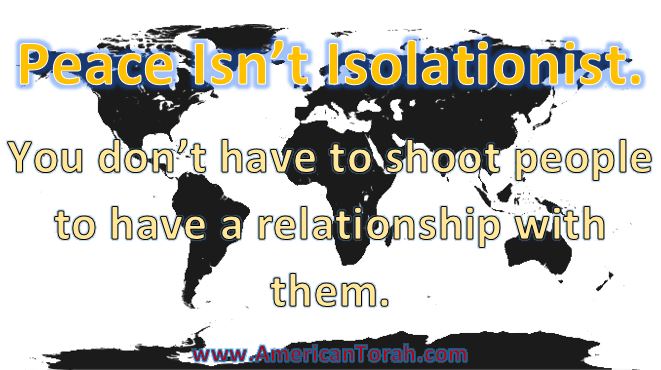In Deuteronomy 1-3, Moses recounts to Israel their journey from Egypt to the Promised Land, including all of their triumphs, tragedies, and embarrassments. “Remember when we did this and we went there, and then we fought those people, and I told you this thing, then you did that, and we had that other war with those other people, and God was really mad at you about this thing, and don’t mess with these people, but don’t be afraid of these others…” It’s all quite a story.
Most of Torah is concerned with how people are to relate to each other and to God as individuals, but this passage is much more interested in how Israel had behaved as a nation in relation to other nations. There were essentially three ways that God told Israel to treat with the peoples they encountered:
- They attacked you. Destroy them.
- I’ve given their land to you. Destroy them and take it.
- If they leave you alone, you leave them alone.
Does this resemble American foreign policy? Not even remotely. We are constantly meddling in the internal affairs of foreign nations for any number of reasons. We invade countries all over the world because we don’t like how they do business or how they treat their own people or their neighbors. The precedent that God set with Israel and her neighbors is simple: If they’re not actively attacking you, then stay out of their business.
It’s not isolationism to avoid military adventurism. Would you call a neighbor antisocial if he didn’t break down your door and shoot one of your children before borrowing a tool? You don’t have to shoot and bomb people to have a relationship with them.
It’s not a bad idea to have a “big stick” at hand, though, just in case.



